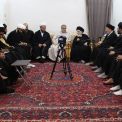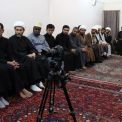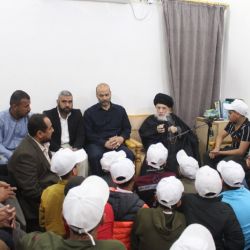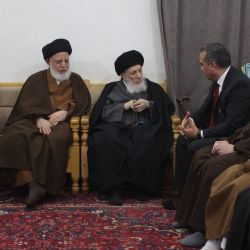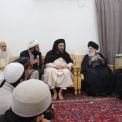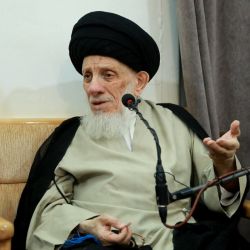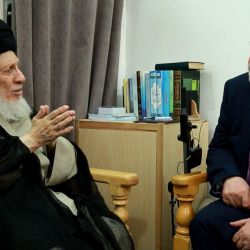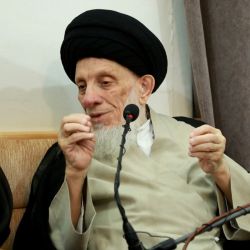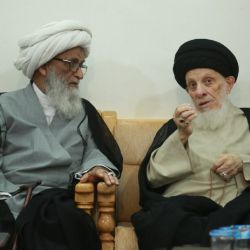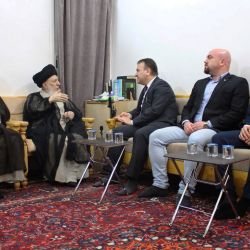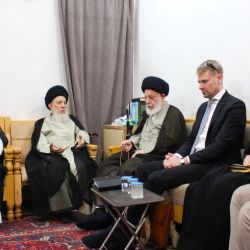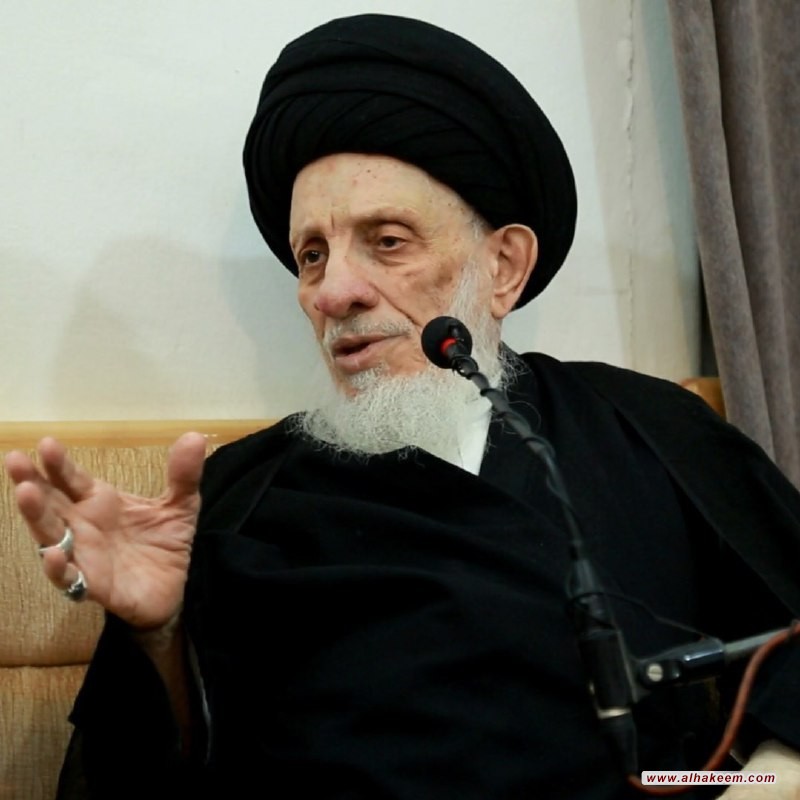
His Eminence, Grand Ayat0llah Muhammad Saeed Al-Hakeem, spoke to a group of students of Islamic sciences on a few aspects of the life of Imam Ali (peace be upon him), and about the hardships and tribulations he and his Shi’ahs faced, because of their steadfastness on their principles that originated from the teachings of the Holy Quran and the Holy Prophet (peace be upon him and his progeny).
He spoke about Hadith al-Thaqlayn, in which the Prophet (peace be upon him and his progeny) said: “I indeed leave behind amongst you two weighty things: the Holy Book, and my progeny, the Ahlulbait; as long as you hold on to both, you will never go astray.”
He spoke of the fortitude of the Shi’ahs, the followers of Amir al-Momineen (Peace be upon him) in staying upon the Truth, despite the pressures and injustices they faced. There came a point when their enemies thought they could finally eradicate true Islam, the Islam that was founded upon the divinely-ordained authority of the Ahlulbait (peace be upon them). However, their strength made them a well-known respected nation.
His Eminence spoke of other critical moments that the Shi’ahs have faced, such as the recent Baathist regime. This despotic regime turned its attention to the Seminary of Najaf and began expelling foreign students and scholars. Then it began arresting and assassinating the Iraqi students and scholars, until this city became almost empty of students and scholars, except a few who insisted on continuing their duties. The religious seminary suffered greatly and lost many great scholars. The 90s passed with its hardships, but with the fall of the regime the Seminary of Najaf has returned to its former state to play its role in the study, teaching and research of Islamic sciences, the propagation of the path of the Ahlulbait (peace be upon them) and in leading the Shi’ahs.
His Eminence concluded by praying to the Almighty to help and support the students of the Seminary to pursue their studies with sincerity to Him, and in fulfilling their responsibilities in a manner that pleases God, and that they are in their guidance of the Imam (may God hasten his reappearance), and that they see the rewards of their work in this life and the Hereafter.

